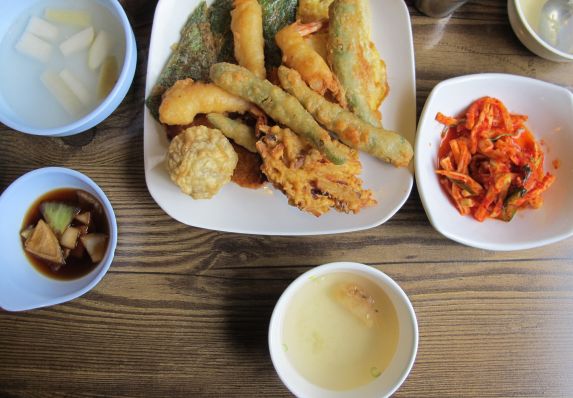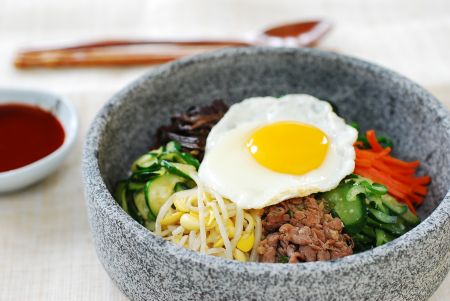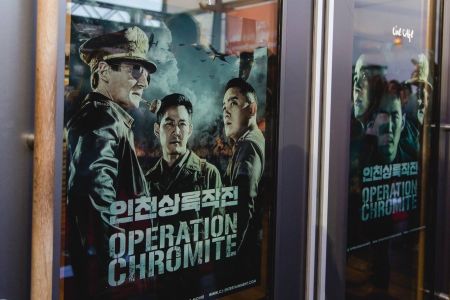Seouljournal (91)
Children categories
How to Make Galbi
Written by Hyosun RoGalbi
No visit to Korea is complete without trying Korean barbecue that’s grilled in front of you over an open flame. If you can’t make a trip to Korea, you can also enjoy delicious Korean barbecue at home. Galbi (beef short ribs) is one of the most popular barbecue dishes in Korea, especially for special occasions and gatherings. Delicious Korean barbeque is all about the marinade, and it’s easy to prepare!
Drinking Survival Rules in Korea
Written by Seoul JournalThe basic game plan for any night out among Koreans is to last five rounds which cover five different locations. These rounds often include multiple alcoholic beverages and food across a spectrum of delicacies. It may sound like a basic bar hop from the college days of yore, but for many, they’re no longer in college and still, the need to “hop” from place to place persists. For anyone new to Korea, if you don’t know what the expectations are, you could go hard and fast and end up home in bed before the night has even began according to Korean standards. The rounds can be flexible in order, but do not doubt that there will be multiple rounds with lots of food and drink. Here are the basics before you head out for the first time or for the next time.
How to make Bibimbap
Written by Hyosun RoBibimbap
Bibimbap is a large bowl of rice topped with a colorful array of individually prepared vegetables and beef, and served with a gochujang (Korean red chili pepper paste) sauce. Bibim means mixing, and bap means rice. The mixing typically happens at the table right before eating. Sometimes, bibimbap is served in a sizzling hot stone bowl (dolsot), which gives the bottom layer of rice a nice golden crust. This bibimbap recipe looks long, but it is actually a collection of several easy-to-make side dishes (banchan) using common vegetables such as spinach, cucumbers, zucchini, carrots, bean sprouts, etc. This recipe uses 7 toppings, but any 3 or 4 of these will make a delightful bibimbap dish. Simply omit the beef for a vegetarian dish.
Partners
 |
DOINDIE |
Rockin' Out with Rock 'N' Roll Radio
Rock and Roll is an incredibly diverse genre of music. Even with the exponential growth in its ever expanding number of sub-genres, a defined musical category can rarely ever satisfyingly describe the sonic subtleties each unique band possesses. But occasionally a band comes along that so precisely matches a specific musical genus; you might as well put it in the band’s name. Enter Rock ’N’ Roll Radio. The four piece band, whose recent meteoric rise is a testament to their expert musicianship and professional commitment to their craft, fully encompass the Rock and Roll pathos. The only thing missing is the occasionally intolerable, occasionally hilarious swagger that often comes with the territory. These are the nicest guys you could ever meet, but don’t let that fool you. They are Rockers with a capital “R”.
Operation Chromite
Written by Seoul Journal
A special screening of the Korean film Operation Chromite, hosted by CJ Entertainment, the Korean Cultural Center, and the American Legion Hollywood, was held on August 4th before its American box office release. People poured into the Hollywood American Legion Post 43, including many veterans who had served in the Korean war and their companions. Though the Korean War is quite memorable for the Korean people, it is often called the Forgotten War by Americans, as many veterans who served are unrecognized for their part in defending the South Korea that exists today. The night served as an opportunity to remember and commemorate their sacrifices.
Modern Art Exhibitions
Written by Seoul JournalNational Museum of Modern and Contemporary Art
The National Museum of Modern and Contemporary Art is hosting a number of temporary exhibitions this summer. The artists on display are varied from Korean, to international, as well as hot new up-and-coming artists, to artists with long and illustrious careers. It is the objective of MMCA to provide a retrospective of the tradition of modern art as well as the new trends of today. The museum has three branches: Gwacheon, Seoul and Deoksugung. Each branch is closed on Monday. The Gwacheon location is family friendly as it has a children’s gallery.
Patbingsu: Taste of Korean Summer
Written by Charlotte GoffPatbingsu: The Taste of Korean Summer
How do you tell when summer is drawing close? Of the five senses, the most obvious might be touch: go outside, feel the heat. Next might be sight – abundant greenery replacing the blossoms of spring. But in Korea the sense that proves summer's imminent approach is taste, as restaurants and cafés throughout the country unite in offering the classic Korean dessert “patbingsu” - literally “red bean ice flakes.”
Author Kyung-sook Shin
Written by Seoul JournalKyung-sook Shin is a celebrated author in her native South Korea. She made her literary debut in 1985, winning the Munye Joongang New Author Prize for her novella Winter Fable. She recently came to international attention with the translation of her latest book, Please Look After Mom, into a number of languages for distribution in 33 countries. The book is about a mother who disappears and the family’s desperate search to find her. It won the prestigious Man Asian Literary Prize for 2011, the Asian equivalent of the Man Booker Prize. The first Korean and first woman to win the prize, she beat celebrated Asian authors such as Haruki Murakami and Anuradha Roy. TJ’s Hong Kong correspondent David Nunan caught up with Ms. Shin at the recent Hong Kong International Literary Festival where she was a featured speaker.
DN: When did you decide that you wanted to be a writer?
K-s S: My dream to become a writer came very naturally to me. I grew up in the rural countryside, a long way from the city. We raised animals like cows and chickens and then we would kill them and eat them. I had many siblings, many brothers who would bring books home and leave them lying around. I read them and fell in love with literature. Many of the questions I had about life were answered in the books. I loved the characters and felt that I was experiencing the same thing. So my dream to become an author was very natural to me. When I was 16, I went to Seoul to go to high school, and my love of literature got deeper there.
Rethinking the MBA
Written by Seoul JournalRethinking the MBA
As the global financial crisis has subsided, some business schools have added one or two courses on ethics to their MBA programs. The courses are mostly an afterthought. The thinking behind them is: “Our financial institutions have behaved badly, so maybe it would be a good idea to add a touch of ethical instruction to the curriculum.” Nothing could be more revealing of the mindset of our economic thinkers than that business ethics has become a sideshow, an add-on, an extra frill.
The prevailing view of the economy as a giant autonomous mechanism following inexorable laws is a highly abstract, quasi-scientific conception. Like the laws of gravity, there isn’t much room for ethics. But, in fact, this prevailing view conflicts sharply with how we actually experience the economy in our day-to-day encounters.
The Hungarian philosopher Karl Polanyi emphasized the importance of what he called “tacit knowledge,” or non-conscious knowledge that accumulates from our experience with ideas, objects, people or institutions without our being fully aware of it.
More...
Street Style: Red Roses
Written by Caroline Bryan and Danielle Potgieter of ROKstylesStreet Style: Red Roses
We spotted this super cute couple out on the chic streets of Sinsa, Garosugil. We like how they both have a classy and sophisticated style with an edge. The contrast of the lady’s delicate lace dress with a leather motorcycle jacket and the guy’s skater preppy combination are both the perfect balance.
신사 가로수길에서 발견한 귀여운 한쌍의 커플!
클래식 세련됨 속에 묻어나는 독특한 개성을 잘 살렸어요.
여성스러운 레이스 원피스에 가죽자켓을 입은 여자분과 펑키하면서 단정한 프레피스타일로
멋을 낸 남자분의 조화가 잘 어우러지네요
Street Style: Dandy Gentleman
Written by Caroline Bryan and Danielle Potgieter of ROKstylesStreet Style: Dandy Gentleman
We spotted this stud in Dongdaemun during fashion week. He has a unique dandy style incorporating different fun elements. His military style linen jacket, bolo tie, and two-tone shoes make for an interesting mix of different styles that somehow manages to work.
서을패션위크에서 눈에 띈 댄디한 스타일의 남자분.펀한 요소가 가미된 의상이 돋보였는데요.
밀리터리풍의 리넨자켓, 볼보타이와 두가지 색깔의 신발이 안어울리는듯하면서 멋지게 조화를 이루었네요.
Street Style: Crop Top and Leather
Written by Caroline Bryan and Danielle Potgieter of ROKstylesCrop Top and Leather
Crop tops have made a huge come back and are all the rage this year. This lady knows she looks good and isn’t afraid to proclaim it to the world. Her leather disco pants and all black make for a fun and sexy, modern “Grease” inspired look.
크롭탑이 올시즌 다시 인기를 끌고 있죠? 크롭탑을 당당하고 멋지게 소화한 여자분을 발견했습니다.
가죽 디스코 바지와 검은색 코디로 발랄하면서 섹시한 분위기를 연출하고 있네요.
영화 그리스에서 본듯한 스타일 예쁘네요
QUALITY TIME
Written by Seoul JournalWhat is the most beneficial way to reward your children?
Buy them a new toy? Allow them to stay up later? Let them watch a special TV show?
These may or may not have positive effects, but none of them can compare with the undivided attention of a parent.
Older children may deny that they require attention from their parents; however, it is possible to see the impact extra attention can have. With younger children, the results are often visible straight away. They respond with smiles and can be encouraged to try new things. Eventually you may notice an increase in your child’s self-esteem as they grow older.
Self-esteem is what we build in our children when we give them the attention they require. However, it is important to give children quality attention; just being around your child is not considered quality attention.






























